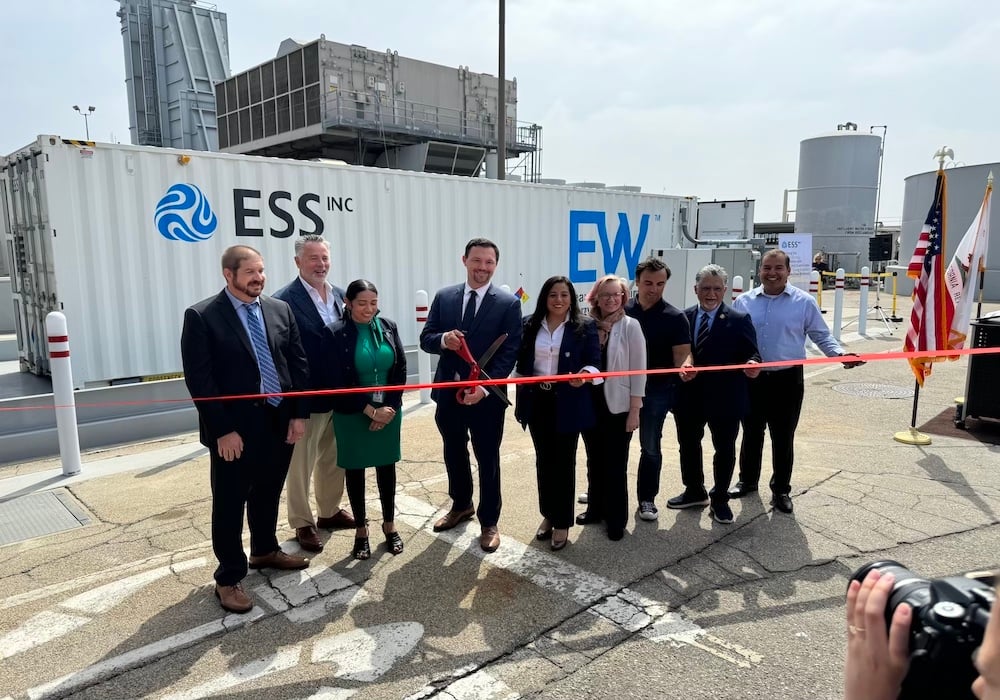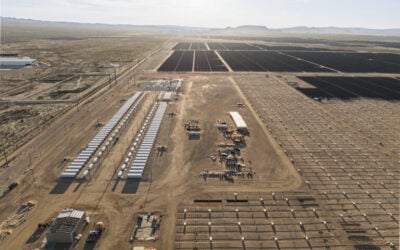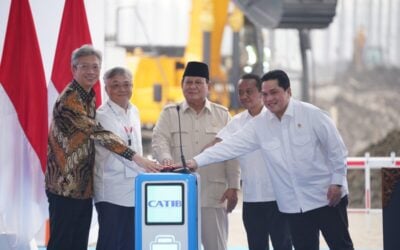
Another edition of news in brief from around the world in energy storage, with Powin, ESS Inc and New Zealand’s Counties Energy.
Powin to integrate Bergstrom HVAC technology in global BESS projects
US battery storage system integrator and manufacturer Powin has formed a strategic partnership with climate control specialist Bergstrom.
Enjoy 12 months of exclusive analysis
- Regular insight and analysis of the industry’s biggest developments
- In-depth interviews with the industry’s leading figures
- Annual digital subscription to the PV Tech Power journal
- Discounts on Solar Media’s portfolio of events, in-person and virtual
Bergstrom’s HVAC solutions will be integrated into Powin battery energy storage system (BESS) products for global projects.
Bergstrom, headquartered in Illinois, US, develops and manufactures climate control technologies for a range of applications, with a major focus on commercial vehicles. In the energy storage space, it offers air-cooled, liquid-cooled and direct-cooled thermal management solutions.
Powin claimed the integration will enable improvements in energy efficiency, temperature control, safety and reliability. The strategic partnership announcement comes about a month after the Oregon-headquartered integrator launched a new 5MWh BESS solution fitting the dimensions of a standard 20-foot container.
New Zealand’s first-ever second life battery storage system goes online
Repurposed Nissan Leaf electric vehicle (EV) batteries are being used in what is thought to be New Zealand’s first-ever ‘second life’ stationary storage system.
Electricity distribution company Counties Energy announced this week (4 June) the official launch of its second life project, Berm Battery, installed at the side of a state highway in the district of Waikato, on New Zealand’s North Island.
The low-voltage (LV) solution uses 18 Nissan Leaf batteries—which Counties Energy said would otherwise have been discarded and destined for landfill—integrated in a 240kWh system which is used to enable high-power EV charging.
The technology was provided by Australian energy storage developer Relectrify. Relectrify’s commercial and industrial (C&I) AC battery storage solution Revolve uses a patented technology, Cellswitch, which the company claimed is much lower cost than comparable products, due to its replacement of key components like battery management system (BMS) and conventional inverters.
The battery system increased the available power for charging at the site in Mercer, Waikato, from 120kWh to 180kWh. It was commissioned in October 2023, following a process that included two years of field-based real-world testing, before its official launch this week.
ESS Inc commissions long-duration flow battery in Burbank, California
ESS Inc’s iron and saltwater electrolyte flow battery installation for community-owned energy supplier Burbank Water & Power has been officially inaugurated.
With more than 6-hour storage duration, the 75kW/500kWh iron flow battery system is paired with a 265kWh onsite solar PV array at Burbank Water & Power’s (BWP) EcoCampus, in the Californian city.
The project deal was announced in late 2022, shortly after ESS Inc struck a much bigger agreement with another California utility supplier, Sacramento Municipal Utility District (SMUD) for up to 200MW/2,000MWh of iron flow batteries.
BWP is targeting 100% carbon emissions-free power by 2040 and its deployment of the ESS Inc battery unit, branded Energy Warehouse, “will enable our team to gain experience with iron flow long-duration energy storage technology which will be a linchpin of the renewable grid of the future,” BWP general manager Mandip Samra said.
BWP’s target is five years ahead of California’s 2045 statewide decarbonisation goal. ESS Inc noted in a press release that trade group California Energy Storage Alliance has estimated 13,571MW of long-duration energy storage (LDES) will be required by 2028 to achieve that goal.
ESS Inc’s Energy Warehouse will be used to demonstrate the use of the iron flow battery technology, with BWP’s EcoCampus housing employees and administration buildings while showcasing various sustainable building and landscape technologies, such as LEED Platinum Certified buildings and a solar PV carport in the Art Deco style.






